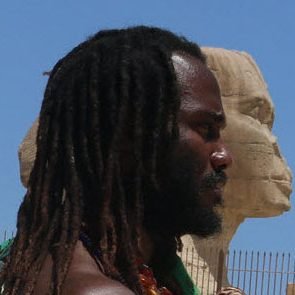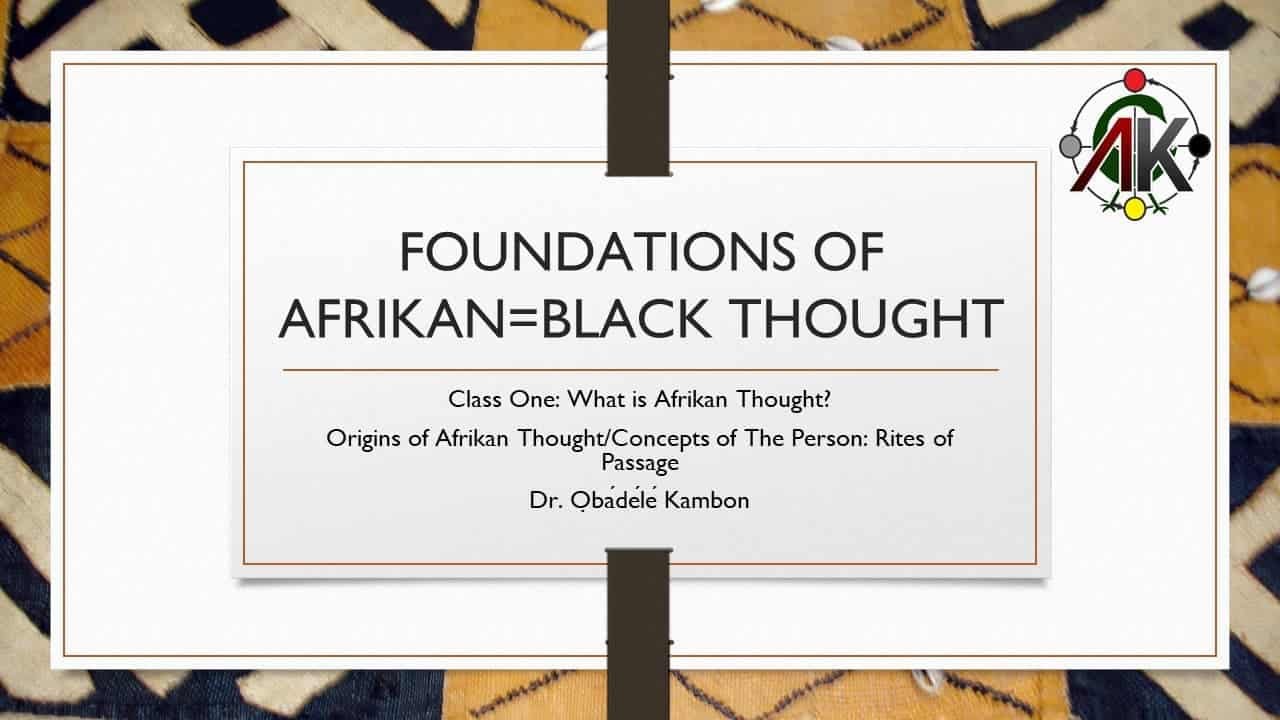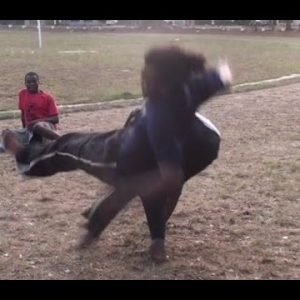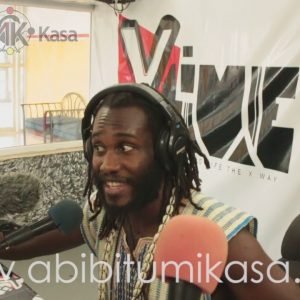$300.00
Description
PDFs and Videos of the Full Learn-at-your-own-pace Bundle
12 PDFs, 14 Videos included + 7 Bonus Videos included!!!
Course Description and Objectives: Foundations of Kmtyw Thought aims to fill a gap in the epistemological universe of the typical MPhil/PhD student regarding the deep thought of Kmtyw (Black people) throughout space and time. The course will introduce students to the core principles, modes, patterns, and history of thought and knowledge production in Kmt (Land of Black People) globally, from antiquity to the present. In the course, we introduce students to a variety of fundamental concepts of Kmtyw and ideas applicable to the development of contemporary indigenous African theoretical and conceptual frameworks for use in their own research. As such, students will acquire familiarity with rich and profound interdisciplinary primary sources (e.g., astronomy, medicine, literature, n.k.). They will also be introduced to the writings of deep thinkers of classical and contemporary Kmt and gain an understanding of pertinent evaluative criteria and organizing principles to assist in developing their own research in innovative ways.
At the end of the course, students would have acquired an understanding of the cosmology undergirding classical and contemporary Deep Thought and Philosophy; acquired some tools of analysis for understanding common elements in the worldview of Kmtyw throughout space and time and gained an exposure to the manifestations of the fundamental tenets of the Kmtyw Worldview throughout the continent and the diaspora; and become familiar with innovative approaches to the study of Kmtyw Thought and their implementation in research on sbAywt nt Kmtyw (studies of Black people).
(Main text and supplementary texts NOT included with this product)
Main Text(s): Kamalu, C. (1998). Person, Divinity and Nature. London, Karnak House.
Carruthers, J. H. (1999). Intellectual Warfare. Chicago: Third World Press.
Ephirim-Donkor, A. (2011). African Spirituality: On Becoming Ancestors, University Press of America, Incorporated.
Fu-Kiau, K. K. B. (1991). Self- Healing Power and Therapy, Black Classic Press.
Fu-Kiau, K. K. B. (1994). Ntangu-Tandu-Kolo: The Bantu-Kongo Concept of Time. In J. K. Adjaye (Ed.), Time in the Black Experience (pp. 17-34): Greenwood Press.
Griaule, M. (1970). Conversations with Ogotemmeli: An introduction to Dogon religious ideas. Oxford: Oxford University Press.
Obenga, T. (2004). African philosophy: The Pharaonic period, 2780-330 B.C. Popenguine, Senegal: Per Ankh.
Supplementary Texts (Subject to augmentation upon increased availability of texts):
Aboagye, F. B. (2010). Indigenous African Warfare: Its Concept and Art in the Gold Coast, Asante, and the Northern Territories up to the Early 1900s. Pretoria, SA: Ulinzi Africa Publishing (UAP) Solutions.
Adewale-Somadhi, F. A. (1993). Fundamentals of the Yorùbá Religion (Òrìṣà Worship). San Bernardino, CA: Ilé Ọ̀rúnmìlà Communications., pp. 69-139.
Akintola, A. (1999). Yoruba ethics and metaphysics: being basic philosophy underlying the Ifa system of thought of the Yoruba, Valour Publishing Ventures.
Akoto, K. A., & Akoto, A. N. (2000). The Sankɔfa Movement: ReAfrikanization and the Reality of War. Washington, DC: Oyoko InfoCom Inc.
Ani, M. (1994). Yurugu: An African Centred Critique of European Cultural Thought and Behavior. Trenton, NJ: Africa World Books.
Appiah, P., et al. (2001). Bu Me Bɛ: Akan Proverbs, Centre for Intellectual Renewal.
Asante, M. K., & Mazama, A. (2009). Encyclopedia of African Religion. New York: SAGE Publications.
Breitman, G. (1994). Malcolm X speaks: selected speeches and statements, Grove Press.
Cabral, A. (1974). Return to the source: selected speeches, Monthly Review Press.
Carruthers, J. H. (1995). Mdw Nt̲r. London: Karnak House.
Desch-Obi, T. J. (2008). Fighting for Honor: The History of African Martial Art Traditions in the Atlantic World: University of South Carolina Press., pp. 1-51.
Diop, C. A. (1989). The Cultural Unity of Black Africa: the domains of patriarchy and of matriarchy in classical antiquity. London: Karnak House.
Eze, E. C. (1998). African Philosophy: An Anthology. Hoboken, NJ: Wiley.
Fu-Kiau, K. K. B. (2001). African cosmology of the Bântu-Kôngo: tying the spiritual knot: principles of life & living, Athelia Henrietta Press, publishing in the name of Orunmila.
Fu-Kiau, K. K. B. (2007). The Mbongi: An African Traditional Political Institution: a Eureka to the African Crisis, African Djeli Publishers.
Garvey, M. and A. J. Garvey (1923). The Philosophy and Opinions of Marcus Garvey, Or, Africa for the Africans, Majority Press.
Gyekye, K. (1987). An essay on African philosophical thought – the Akan conceptual scheme. Cambridge: Cambridge University Press.
Hilliard, A. G., Williams, L., & Damali, N. (1995). The Teachings of Ptahhotep: The Oldest Book in the World. Grand Forks, ND: Blackwood Press.
Hilliard, A. G. (1998). SBA: the reawakening of the African mind, Makare Pub.
Jeffers, C. (2013). Listening to Ourselves: A Multilingual Anthology of African Philosophy. Albany, NY: SUNY Press., pp. 159-175.
Kamalu, C. (1990). Foundations of African Thought: A Worldview Grounded in the African Heritage of Religion, Philosophy, Science and Art. London: Karnak House.
Martin, D. (2008). Maat and Order in African Cosmology: A Conceptual Tool for Understanding Indigenous Knowledge. Journal of Black Studies, 38(6), 951-967. doi:10.2307/40035033
Montgomery, B. (Cartographer). (2013a). Africa South Up World Map.
Montgomery, B. (Cartographer). (2013b). Kemet South Up Map.
Nehusi, K. S. (2015). Libation: An Afrikan Ritual of Heritage in the Circle of Life. Lanham: UPA.
Nkrumah, K. (1967). Axioms of Kwame Nkrumah. London: Panaf Books.
Obenga, T. (2008). Egypt: Ancient History of African Philosophy. In K. Wiredu (Ed.), A Companion to African Philosophy. Hoboken, NJ: Wiley., pp. 31-49.
Owomoyela, O. (2005). Yoruba Proverbs, University of Nebraska Press.
Umeh, J. A. (1997). After God is Dibia: Igbo cosmology, healing, divination & sacred science in Nigeria. London: Karnak House.
Wendorf, F., & Schild, R. (1995). Nabta Playa during the Early and Middle Holocene. ANKH Revue d’Egyptologie et des Civilisations Africaines, 4., pp. 33-45.
Wilson, A. N. (Producer). (1993, 2 April 2016). Blueprint for Black power: A moral, political, and economic imperative for the twenty-first century. [Lecture]
Wiredu, K. (1985). The Akan Worldview, Woodrow Wilson International Center for Scholars.
Wiredu, K. and K. Gyekye (1992). Person and Community: Ghanaian Philosophical Studies I, Council for Research in Values and Philosophy.
Wiredu, K. (2008). A Companion to African Philosophy. Hoboken, NJ: Wiley.
Course Outline
Understanding African Thought
Week 1: Origins of African Philosophy
Primary Reading(s): Kamalu, C. (1998). Person, Divinity and Nature. London: Karnak House., pp. 17-28.
Obenga, T. (2008). Egypt: Ancient History of African Philosophy. In K. Wiredu (Ed.), A Companion to African Philosophy. Hoboken, NJ: Wiley., pp. 31-49.
Obenga, T. (2004). African philosophy: The Pharaonic period, 2780-330 B.C. Popenguine, Senegal: Per Ankh., pp. 242-271.
Wendorf, F., & Schild, R. (1995). Nabta Playa during the Early and Middle Holocene. ANKH Revue d’Egyptologie et des Civilisations Africaines, 4., pp. 33-45.
Discussion Topics: What is African Thought? What is African Worldview? How does worldview inform thought?
Methods of Research: Sources of information on African Thought and the importance of Primary Research
Concepts of The Person: Rites of Passage
- Birth
- Initiation
- Marriage
- Eldership
- Ancestors
Primary Reading: Kamalu, C. (1998). Person, Divinity and Nature. London: Karnak House., pp. 1-50.
Supplementary Readings: Fu-Kiau, K. K. B. (1991). Self-Healing Power and Therapy. Baltimore, MD: Black Classic Press., pp. 1-42.
Fu-Kiau, K. K. B. (1994). Ntangu-Tandu-Kolo: The Bantu-Kongo Concept of Time. In J. K. Adjaye (Ed.), Time in the Black Experience (pp. 17-34). Westport, CT: Greenwood Press.
Fu-Kiau, K. K. B. (2001). African cosmology of the Bântu-Kôngo: tying the spiritual knot: principles of life & living: Athelia Henrietta Press, publishing in the name of Orunmila.
Week 2: Concepts of The Person: The Person as a Multiple Selves
- The Multiple Selves of African Thought
- The Destiny or Spiritual Double
- The Soul or Breath
- The Heart
- The Ancestral Guardian
- The Shadow
Reading: Kamalu, C. (1998). Person, Divinity and Nature. London: Karnak House., pp. 51-76.
Supplementary Readings: Fu-Kiau, K. K. B. (1991). Self-Healing Power and Therapy. Baltimore, MD: Black Classic Press., pp. 43-106.
Ephirim-Donkor, A. (2011). African Spirituality: On Becoming Ancestors. University Press of America, Incorporated., pp. 49-80.
Obenga, T. (2004). African philosophy: The Pharaonic period, 2780-330 B.C. Popenguine, Senegal: Per Ankh., pp. 383-404.
Wilson, A. N. (Producer). (1993, 2 April 2016). Blueprint for Black power: A moral, political, and economic imperative for the twenty-first century. [Lecture]
Week 3: Number, Destiny and Divination
- The Diviner and the Divination Process
- Divination and Traditional Medicine
Reading: Kamalu, C. (1998). Person, Divinity and Nature. London: Karnak House., pp. 77-86.
Supplementary Reading: Adewale-Somadhi, F. A. (1993). Fundamentals of the Yorùbá Religion (Òrìṣà Worship). San Bernardino, CA: Ilé Ọ̀rúnmìlà Communications., pp. 69-139.
Wiredu, K. (2008). A Companion to African Philosophy. Hoboken, NJ: Wiley. 304-312.
Umeh, J. A. (1997). After God is Dibia: Igbo cosmology, healing, divination & sacred science in Nigeria. London: Karnak House.
Week 4: Complementary Opposites in Ethics and Morals
- Ideas of Good and Evil
- Freedom, Destiny and Moral Responsibility
- Conceptions of Truth, Order and Stability
- Personification of Chaos and Uncertainty in African Myth
Reading: Kamalu, C. (1998). Person, Divinity and Nature. London: Karnak House., pp. 87-106.
Supplementary Text(s): Gyekye, K. (1987). An essay on African philosophical thought – the Akan conceptual scheme. Cambridge, Cambridge University Press., pp. 104-128.
Jeffers, C. (2013). Listening to Ourselves: A Multilingual Anthology of African Philosophy. Albany, NY: SUNY Press., pp. 159-175.
Week 5: Divinity & Nature: Ancient & Traditional Accounts of the Beginning
- Ancient Egyptian
- Bambara of Mali
- Yoruba of Nigeria
- Kuba of Zaire (Congo DRC)
- Dogon of Mali
- Fon of Benin
- Igbo of Nigeria
- Songye of Zaire (Congo DRC)
Reading: Kamalu, C. (1998). Person, Divinity and Nature. London: Karnak House., pp 103-130.
Griaule, M. (1970). Conversations with Ogotemmeli: An introduction to Dogon religious ideas. Oxford: Oxford University Press., pp. 1-40.
Obenga, T. (2004). African philosophy: The Pharaonic period, 2780-330 B.C. Popenguine, Senegal: Per Ankh., pp. 29-90.
Week 6: Common Elements in African Cosmology
- The Primeval Water, the Life-Force, the Void and Continuum
- Transmission of the Life-Force
- The Four Primordial Elements/Ancestors
- Chaos and Order
- Concert of Opposites
- Divine Intelligence/Logos/Word
Reading: Kamalu, C. (1998). Person, Divinity and Nature. London: Karnak House., pp. 131-144.
Supplementary Text(s): Diop, C. A. (1989). The Cultural Unity of Black Africa: the domains of patriarchy and of matriarchy in classical antiquity. London: Karnak House., pp. 47-102.
Carruthers, J. H. (1995). Mdw Nt̲r. London: Karnak House., pp. 39-88; 113-178.
Martin, D. (2008). Maat and Order in African Cosmology: A Conceptual Tool for Understanding Indigenous Knowledge. Journal of Black Studies, 38(6), 951-967. doi:10.2307/40035033
Week 7: The Supreme Being, the Divinities and Spirit-Forces
- Polytheism and Pantheism
- Aloofness of the Supreme Being in African Thought
- The Divinities and Spirit-Forces
- The Human Being in Relation to Divinity
Reading: Kamalu, C. (1998). Person, Divinity and Nature. London: Karnak House., pp. 145-156.
Danquah, J. B. (1968). The Akan doctrine of God: a fragment of Gold Coast ethics and religion. London: Cass.
Griaule, M., & Dieterlen, G. (1986). The Pale Fox. Chino Valley, Arizona: Continuum Foundation.
Week 8: Earth and Land in African Thought and Practice
- The Ancestors as Owners and the Living as Custodians of the Land
- Agricultural Cycle and Ritual
- Dynamic interrelation of the Human Community and the Environment
- Transcendental Cult of the Earth
- Traditional Agricultural Practices
- Colonial Land Policy in Kenya and African Alienation from the Land
- Earth-based Spiritual, Social, Political & Economic Systems
Reading: Kamalu, C. (1998). Person, Divinity and Nature. London: Karnak House., pp. 157-174.
Supplementary Readings: Fu-Kiau, K. K. B. (1991). Self-Healing Power and Therapy. Baltimore, MD: Black Classic Press., pp. 107-136.
Week 9: Class Discussion: Validity of African Philosophy and
Reading: Kamalu, C. (1998). Person, Divinity and Nature. London: Karnak House., pp. 175-184.
Supplementary Text(s): Eze, E. C. (1998). African Philosophy: An Anthology. Hoboken, NJ: Wiley., Preface pp. 1-2; pp. 4-13.
Obenga, T. O. (2004). African philosophy: The Pharaonic period, 2780-330 B.C. Popenguine, Senegal: Per Ankh., pp. 242-271.; pp. 601-610.
Wiredu, K. (2008). A Companion to African Philosophy. Hoboken, NJ: Wiley., pp. 1-49.
Week 10: Animism as a Modern Belief System
Reading: Kamalu, C. (1998). Person, Divinity and Nature. London: Karnak House., pp. 185-192.
Akoto, K. A., & Akoto, A. N. (2000). The Sankɔfa Movement: ReAfrikanization and the Reality of War. Washington, DC: Oyoko InfoCom Inc., pp. i-116.
Week 11: African Thought in Combat/Military Science – Continent and Diaspora
Reading: Desch-Obi, T. J. (2008). Fighting for Honor: The History of African Martial Art Traditions in the Atlantic World: University of South Carolina Press., pp. 1-51.
Aboagye, F. B. (2010). Indigenous African Warfare: Its Concept and Art in the Gold Coast, Asante, and the Northern Territories up to the Early 1900s. Pretoria, SA: Ulinzi Africa Publishing (UAP) Solutions.
Week 12: Philosophy of African Art
Guest Lecture: Efo Sela Adjei
What is African Art?
- Historiography of African Art
- Punitive Expeditions
- Is there an African Aesthetics?
- Aesthetics and Criticism
– Social Functions of African Art
– Contemporary Debates in African Art Studies
– False Philosophical Foundations of “Primitivism” and “Fetishism” in African Art
– The Influence of African Art on European Art and Global Modernism
- African Visual expressions and Visual identity
- African Symbolism and Writing Systems
- Art Appreciation and the African Aesthetic Experience
Reading Material:
Rene Smeets. Signs, Symbols and Ornaments.
Cultural and Social Relevance of Contemporary African Philosophy by Olúkáyọ̀dé R. ADÉṢUYÌ
African Art as the Bedrock of African Philosophy by Olúkáyọ̀dé R. ADÉṢUYÌ
Flash of the Spirit by Robert Farris-Thompson
Noel Carrol. Philosophy of Art: A Contemporary Introduction, New York, Routledge Publishers. 1999. pp.11-12.
Kwame Gyekye African Cultural Values
Rowland Abiodun. The future of African Art Studies: An African Perspective
Rowland Abiodun. African Aesthetics
Rev. Sarpong. Ghana in Retrospect
Gene blocker. Is Primitive Art ”Art”? In P. H. Coetzee. Philosophy from Africa: A Text with Readings. Oxford: Oxford University Press. 2003. p.411.
Carl Jung. Man and His Symbols.
Adolph H. Agbo.Values of Adinkra symbols: For artists, designers, craftsmen, teachers, students, and all who use and appreciate Adinkra symbols.
Philosophy of Art by Antoon Van den Braembussche
Week 13: African Thought and thought of non-Africans / The Battle for African Philosophy, the Battle for Kmt
Reading: Ani, M. (1994). Yurugu: An African Centered Critique of European Cultural Thought and Behavior. Trenton, NJ: Africa World Books., pp. 311-336; 511-570.
Diop, C. A. (1989). The Cultural Unity of Black Africa: the domains of patriarchy and of matriarchy in classical antiquity. London: Karnak House.
Reading: Carruthers, J. H. (1999). Intellectual Warfare. Chicago: Third World Press., pp. 3-86; 253-294.






Leave a Reply